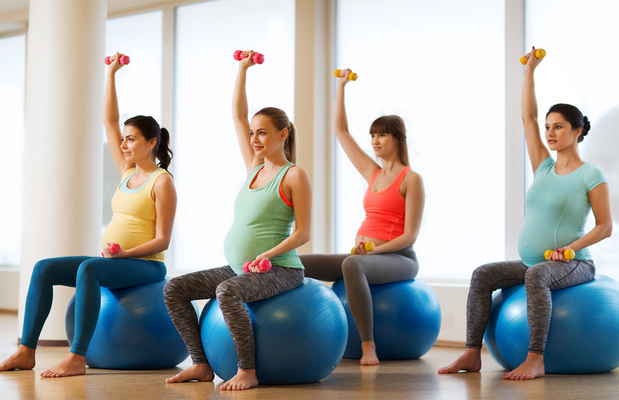
What we experience during pregnancy is very different from our normal life, both mentally and physically. We become more emotional than usual. We become more anxious and more excited. During this period, we need to be much more careful, much more attentive than usual. Now let's come to the wonder of all expectant mothers, is it possible to do sports during pregnancy? Yes, sports should be done during pregnancy as in every period of our lives. By starting at the right time, we can protect our health with exercises suitable for trimesters.
From the 12th week of our pregnancy, we can start regular sports activities. Of course, this should be under the control and approval of our doctor. Sports during pregnancy will support you to have a more comfortable and healthier pregnancy both mentally and physically. Some expectant mothers think that doing sports while pregnant can harm their baby. In fact, in addition to the harm, the exercises to be done at certain intervals with the doctor's recommendation will definitely not harm your baby. In addition, this will make the birth of expectant mothers much more comfortable.
Walking, pilates and yoga are the most suitable sports branches to do during pregnancy. You can also swim and do light exercise. If you already had a sport before pregnancy, you can continue to a certain extent with the permission of your doctor.
In the first 3 months of pregnancy, you can take regular, light-paced walks. 15-20 minutes 3 or 4 days a week is appropriate. If there is a risk of miscarriage, especially in the first 3 months, you should definitely get doctor's approval before walking.
Walking during pregnancy will make you stronger and fitter. In addition, thanks to the walks you take during pregnancy, you will keep excess weight gain under control. In addition, walking during pregnancy can reduce your pregnancy nausea. It also helps to reduce constipation and varicose problems.
Although the pregnancy period may seem like a very simple sport because it is a sensitive period, there are some rules that we need to pay attention to while walking. First of all, it is absolutely essential to have a comfortable and light sneaker. You should choose loose-fitting clothes that will not make you sweat during the walk. And the most important thing is to choose the time to walk. The best time for walking is in the morning.
Another sport you can do during pregnancy is pilates. Of course, with certain movements that will not force pregnant women. Of course, do not forget that you should do it with the advice and permission of your doctor before you start pilates, as you do every sport you will do while pregnant.
Since the first three months of pregnancy are generally considered risky, you can start doing pilates from the 14th week of pregnancy. It is appropriate to do it for an average of 10-15 minutes, 2 or 3 days a week, without tiring yourself. As it is known, some changes occur in our body during pregnancy. These changes are not just mental changes. At the beginning of these changes are weight gain and changes in body shape. It is thought that Pilates can help our body's appearance, posture and spread the weight gained during pregnancy proportionally to the body. After a certain time, as your body starts to get heavier, your back and lower back pain will also begin. You will be able to prevent these pains with the help of pregnancy pilates that you will do correctly and regularly. It is recommended that you do pilates during pregnancy with a trainer, not alone. If you work with a Pilates instructor, you will also work out how to use your pelvic floor muscles in childbirth, kegel exercises and lower back pain problems due to the change in the body's center of gravity with pregnancy.
Again, we would like to state that pregnant pilates during pregnancy should be done with the permission and control of a doctor. Do not forget that pilates will benefit both you and your baby, whom you will soon hold in your arms. What are these benefits? Let's examine it together.
We have explained how useful Pilates is, but in some cases it is definitely inconvenient to do pilates.
Doing yoga during pregnancy will make your pregnancy more peaceful and comfortable. Please do not forget to consult your doctor before starting pregnancy yoga. Like other sports, you can start pregnant yoga from the 12th week of pregnancy if your doctor does not see any objections. You can continue to practice yoga until the end of pregnancy or even after your birth. Pregnancy yoga can be done 2 days a week. Approximately 30 minutes is appropriate.
Although it seems risky, swimming is one of the best exercises that can be done with the advice of your doctor if you do not have a risk of miscarriage or premature birth during pregnancy.
You can swim for 30 minutes a day without tiring yourself. It helps you start the day more dynamic and free from nausea. While swimming, you should pay attention to adequate fluid intake.
You may also be interested in this blog post: How Did I Lose Weight With Intermittent Fasting?